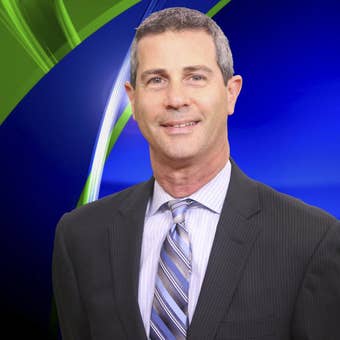Larry Elder: Gavin Newsom is in 'serious trouble' and he knows it
GOP California gubernatorial candidate joins 'Gutfeld!' to discuss education, homelessness and whether he believes Newsom will be recalled
Ballots are now being sent to voters for California's gubernatorial recall election of embattled Gov. Gavin Newsom. In some counties, ballot drop boxes are already open and some elections offices are available for early voting, ahead of the Sept. 14 contest.
"Every county has started mailing ballots for the #2021CARecall. Remember whether you vote yes or no to recalling the Governor, you can cast a vote for a replacement candidate. Once you receive your ballot, you can complete it, seal it, sign it & return it," the California Secretary of State’s office tweeted on Monday.
The 22 million registered voters in the nation’s most populous state are starting to receive their ballots amid a surge in campaign activity, as the Republican replacement candidates stepped up their attacks on the Democratic governor and Newsom kicked into higher gear his efforts to encourage Democrats and other supporters to cast ballots.
Newsom and his allies acknowledge that they need a strong turnout to counter Republican voters motivated to cast ballots in hopes of ousting the governor.
"We’re putting everything out on the line. Just 30 days left, and we must encourage votes." Newsom told Latino supporters this past weekend at a get-out-the-vote event in a neighborhood on the east side of Los Angeles as he warned about the "consequential nature of this recall."
The latest public opinion polls indicate those likely to vote in the recall contest are divided on ousting Newsom. The surveys also point to how crucial turnout will be in a state where registered Democrats greatly outnumber registered Republicans. One of the recent surveys, a UC Berkeley Institute of Governmental Studies/Los Angeles Times poll conducted three weeks ago, indicated that Republicans appear to be more motivated to cast ballots in the recall contest. Although Republicans only account for roughly a quarter of all registered voters in California, the poll suggested they made up a third of those most likely to vote in the recall election.
During a virtual get-out-the-vote conversation with California female Democratic leaders last week, Newsom warned that "those that think this thing is not close… It is."
Newsom continued his "Vote No on the Recall" campaign swing on Monday with a stop at a union hall in San Jose.
Voters are being asked two questions on the Newsom recall ballots. The first question is whether the governor should be removed from office. If more than 50% support removing Newsom, the second question offers a list of candidates running to replace the governor. If the governor is recalled, the candidate who wins the most votes on the second question – regardless of whether it’s a majority or just a small plurality – would succeed Newsom in steering California.
Most of the latest surveys indicate that conservative talk radio host Larry Elder, who jumped into the race just a month ago, is the front-runner among the gubernatorial replacement candidates.
NEWSOM RECALL: CALIFORNIA GOP SAYS ENDORSEMENT WOULD HAVE HANDICAPPED PUSH TO OUST GOVERNOR
The governor and his political team for months have framed the recall drive against him as an effort by the far right, Trump supporters, national Republicans and conservative media to oust him. So it’s no surprise they’ve been blasting Elder in recent weeks, sending out press releases, fundraising emails and social media posts highlighting Elder’s opposition to having any minimum wage and his downplaying of climate change and the nation’s issues with racial inequity.
Newsom said last week that it’s "important to focus on Larry" because he argued that Elder’s "even more extreme than Trump in many respects."
Elder returned fire at the governor in an interview on Fox News last week, stressing, "I think he’s in serious trouble and he knows it."
ELDER SAYS NEWSOM IN ‘SERIOUS TROUBLE’ IN RECALL ELECTION
In a new ad this week, Newsom spotlighted Elder's stance on combating the coronavirus pandemic, charging that if elected he "would eliminate vaccine mandates on Day One, threatening school closures and our recovery."
The recall push was launched in June of last year over claims the governor mishandled the state's response to the pandemic. The effort was fueled by the state's COVID restrictions on businesses and houses of worship, school shutdowns and even opposition to the state's high taxes. But the effort surged in the autumn after Newsom's dinner at an uber-exclusive restaurant, which – at best – skirted rules imposed by the governor to prevent the spread of the coronavirus.
Republicans see the recall election as their best chance to topple a politician who has never lost an election during his years as San Francisco mayor, California lieutenant governor and now governor – and their first chance to win a statewide contest since the 2006 gubernatorial reelection victory by then-Gov. Arnold Schwarzenegger, who was a moderate Republican.
Three years earlier, Democratic Gov. Gray Davis became the second governor in U.S. history to be successfully recalled and he was succeeded by Schwarzenegger, who won the recall election. Schwarzenegger captured nearly 50% of the vote on the second question, even though he was one of 135 candidates listed on the ballot.
CLICK HERE TO GET THE FOX NEWS APP
There are 46 replacement gubernatorial candidates on this year’s recall ballot.
Among the other major GOP contenders are former two-term San Diego Mayor Kevin Faulconer, businessman and 2018 Republican gubernatorial nominee John Cox, state assemblyman Kevin Kiley, and Caitlyn Jenner, the 1976 Olympic gold-medal-winning decathlete turned transgender rights activist and nationally known TV personality.
Former Rep. Doug Ose dropped out of the race on Tuesday after revealing that he suffered a heart attack on Sunday. His campaign statement said he is expected to make a full recovery.













































